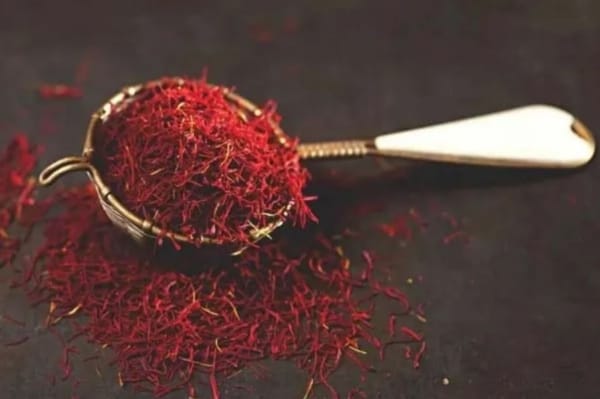 Why Doesn’t Saffron Have a Strong Aroma?
Why Doesn’t Saffron Have a Strong Aroma?
Why doesn’t saffron have a strong aroma? This question often comes up for those who want to buy saffron, one of the world’s most expensive spices, often called “red gold.” Unlike perfumes, saffron’s scent isn’t overpowering. So, what makes saffron’s aroma so unique?
Saffron comes from the Crocus sativus flower. Its unique properties result from its chemical compounds. The saffron flower, a small purple bloom that grows in spring, doesn’t directly release the fragrance. Instead, the aroma originates from the plant’s roots, stems, and threads. These parts give authentic saffron its distinctive scent.
The Aroma of Authentic Saffron
People have valued the scent of pure saffron for centuries. This subtle and calming fragrance has made it popular for stress relief. Many find saffron’s aroma relaxing, and some even use it in therapies to reduce anxiety. The mild scent also appears in certain massages and relaxation practices, making saffron more than just a cooking spice.
Why Doesn’t Saffron Smell Like Perfume?
The main reason lies in how people process saffron. To bring out its unique aroma, saffron undergoes a careful drying process, typically done by hand. If people use mechanical drying, many of the chemical compounds that create saffron’s fragrance are lost. This is why traditional drying methods result in a stronger fragrance.
Farming methods also impact the aroma. For example, saffron grown in Gonabad, Iran, has an exceptional fragrance because farmers cultivate it using qanat water and organic fertilizers. The FAO recognizes Gonabad’s farming techniques, which help make its saffron famous for its rich fragrance.
Saffron’s Unique Fragrance
The natural scent of saffron is often compared to a blend of honey, vanilla, hay, and tobacco. Its main aromatic compound, safranal, ranges from 25 to 50 units in pure saffron. While the fragrance is sweet and inviting, saffron’s taste has a slightly bitter, earthy note, giving it a fascinating dual sensory profile.
Factors Affecting Saffron’s Aroma
- Drying Process: Manual drying helps preserve the chemical compounds responsible for saffron’s aroma, while mechanical drying reduces the fragrance.
- Age of Saffron: Fresh saffron has a milder aroma compared to saffron that has been stored for at least six months. Like fine wine, saffron’s scent intensifies over time.
- Source and Quality: Always buy saffron from trusted suppliers or directly from farmers to ensure its authenticity and aroma.
Conclusion: Saffron’s Delicate Aroma
Although saffron doesn’t have a perfume-like scent, its unique fragrance plays a key role in both culinary and therapeutic uses. Factors such as drying, farming methods, and aging significantly affect saffron’s aroma. Whether you use saffron in cooking or relaxation practices, its subtle, calming scent adds a touch of luxury to any experience.







Get Social